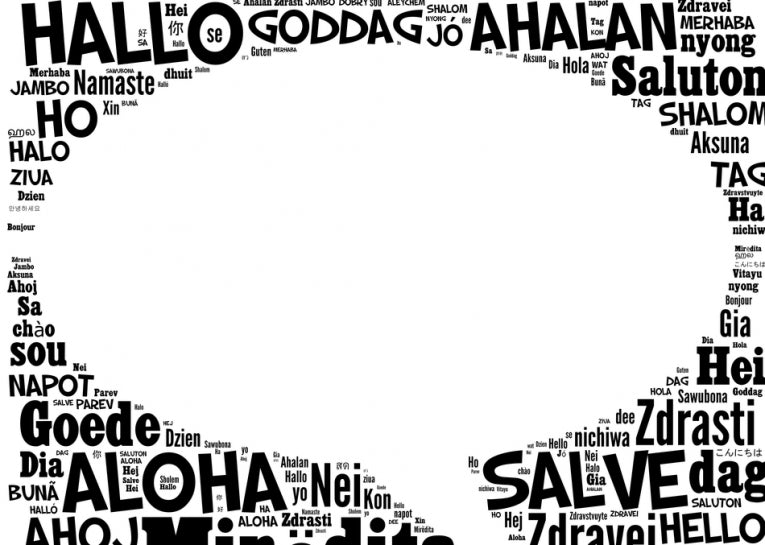On 21st February each year the world's linguistic and cultural diversity and multilingualism is celebrated by International Mother Language Day. This was announced by UNESCO on 17th November 1999 and first observed on 21st February 2000.
This particular date was chosen to commemorate events that took place in Bengal province following the partition of India in 1947. Bengal was divided into two parts according to the predominant religions of its inhabitants. The western part became part of India and the eastern part, known as East Bengal, became part of what was then known as East Pakistan.
From the beginning there was economic, cultural and linguistic friction between East and West Pakistan and tensions rose in 1948 when it was declared that Urdu was to be the sole national language of both parts of the country.
The Bengali-speaking majority in East Pakistan protested most vehemently and this came to a head on 21st February 1952 when Dhaka University students staged a protest. Such protests had been declared illegal and the police opened fire on the students and four of them were killed, with a result that they immediately became martyrs to the cause.
Unrest continued in East Pakistan, with Bengali speakers campaigning for the right to use their own language. In February 1956 this was eventually allowed, but the original frictions continued, eventually leading to all-out war between the two sections of the country. The outcome was that East Pakistan became an independent country known as Bangladesh, with Bengali as its official language.
Since the four students were killed fighting for the right to use their mother tongue, it was considered to be most appropriate to choose 21st February, the date of their deaths, for International Mother Language Day.
The day was later formally recognised by the United Nations in a resolution that established 2008 as the International Year of Languages.
Language plays a vital role in relation to identity, communication, social integration, education and development. There is a human right for people to speak their mother tongue and somewhere over 6,000 languages are spoken today. However, it is estimated that without measures in place to protect and promote minority and endangered languages, half of them will disappear by the end of the present century.
96 of these languages are spoken by a mere 4% of the world's population and according to UNESCO, 29% of the world's languages are in danger and a further 10% are considered to be vulnerable.
UNESCO promotes education that is based on a bilingual or multi-lingual approach with an emphasis on the use of the mother tongue. Research has shown that this has a positive impact on learning and its outcomes.
The theme for International Mother Language Day 2013 is "The Book". Previously many of the events of International Mother Language Day have used translations of material written in minority languages.
This year the proposal is for public readings of texts, poems or other material written in a local or "less resourced" language. These readings could take place in public libraries, universities, schools, restaurants or cafes. It is hoped that Radio and TV stations will also devote a little time to highlight the day.
Mother tongues are representative of the linguistic and cultural traditions of peoples throughout the world. They are capable of inspiring solidarity based on understanding, tolerance and dialogue and should be celebrated, cherished and safeguarded.
Raising the profile of these minority languages is the role of International Mother Language Day.










